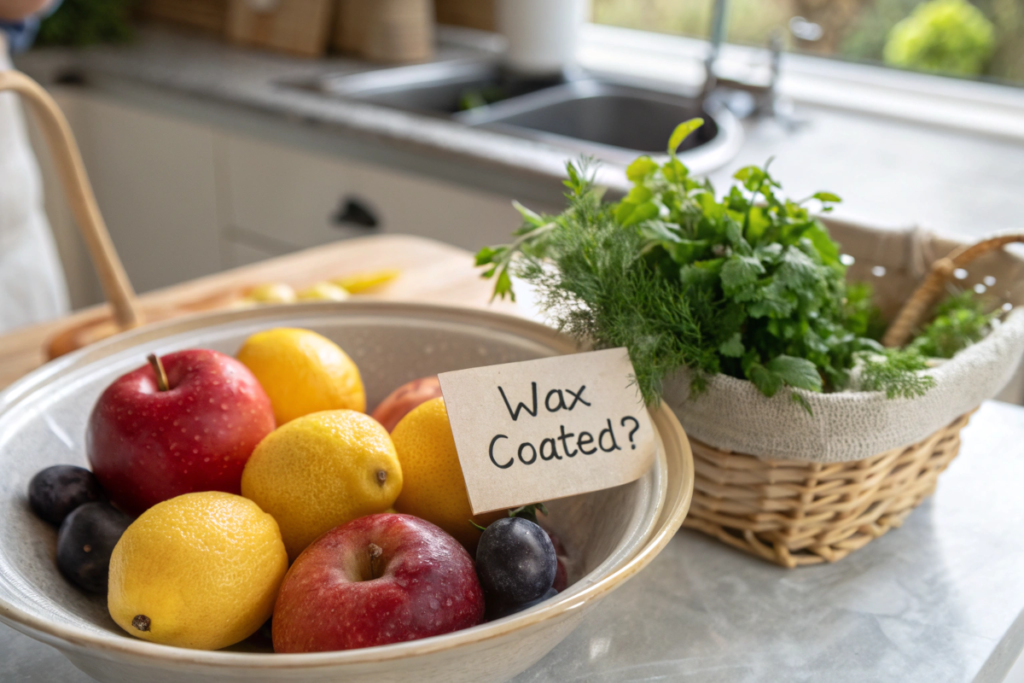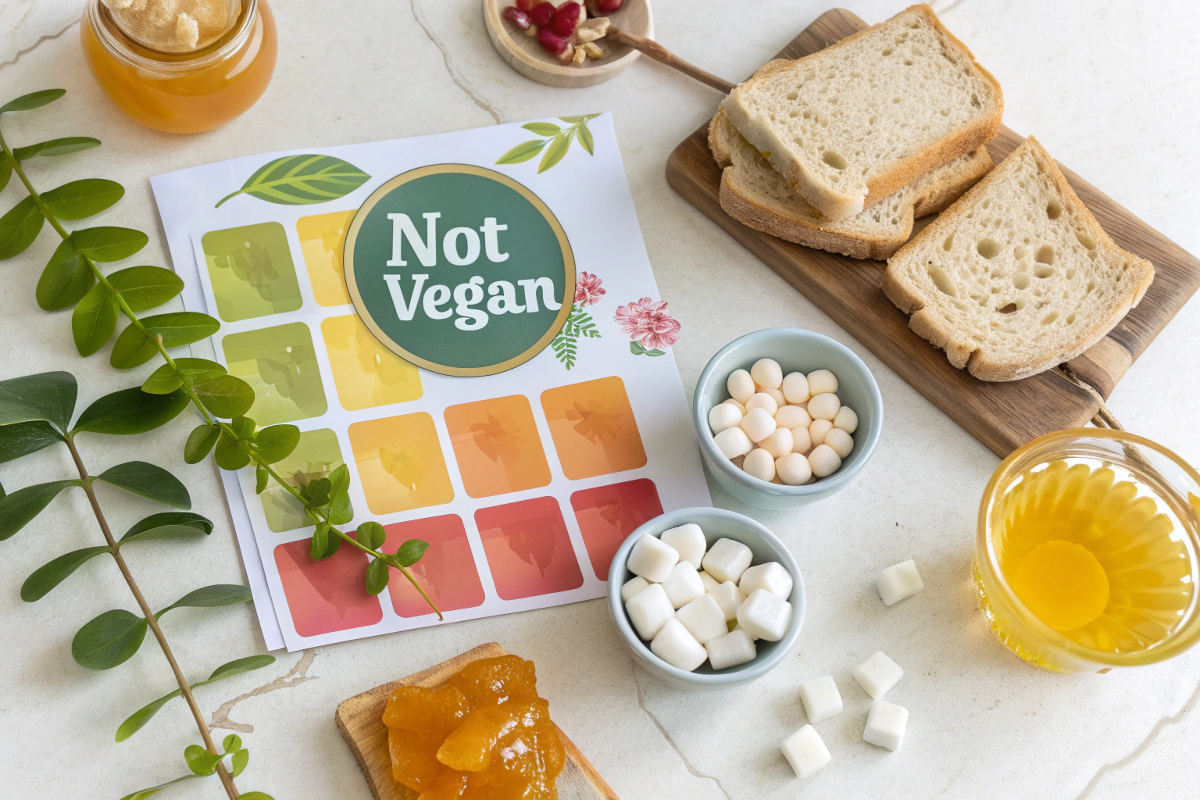Veganism goes beyond a diet; it embodies a lifestyle that avoids animal products and supports ethical, sustainable living. While many foods appear vegan at first glance, some surprisingly are not. This guide explores what is surprisingly not vegan?, uncovering hidden animal-based ingredients and offering tips to help you make informed, ethical choices in your vegan journey.
What Does It Mean for a Food to Be Vegan?
Understanding the Principles of Veganism
Veganism focuses on eliminating all animal products and by-products from one’s diet and lifestyle. To qualify as vegan, a food must exclude ingredients derived from animals, such as meat, dairy, eggs, honey, and certain additives.
Moreover, the production process should avoid animal exploitation and cruelty. Understanding these principles helps vegans make informed choices when selecting and consuming foods, ensuring their selections align with ethical and dietary values.
Common Assumptions About Vegan-Friendly Foods
Why Some Foods Are Generally Considered Vegan-Friendly
Many foods naturally fit into a vegan diet. Fruits, vegetables, grains, legumes, nuts, and seeds are inherently plant-based and free from animal products. These foods are rich in essential vitamins, minerals, and fiber, contributing to overall health and well-being.
Additionally, their versatility allows them to be enjoyed fresh, cooked, or as part of various dishes and snacks. However, despite their natural vegan status, certain processed and packaged foods can contain hidden animal-based ingredients, challenging the assumption that all vegan-friendly foods are entirely vegan.
Why Some Foods Are Surprisingly Not Vegan
Explanation of Animal-Derived Additives and Processing Methods
While the base ingredients of many foods are plant-based, hidden animal-derived additives and specific processing methods can make them non-vegan. These non-vegan practices include:
- Animal-Based Food Additives: Ingredients like gelatin, casein, and isinglass are derived from animals and are often used in processing.
- Hidden Ingredients: Products may contain unexpected animal derivatives such as honey, whey, or certain colorings.
- Processing Aids: Some manufacturing processes use animal-based additives to achieve desired textures and flavors.
- Cross-Contamination: Foods processed in facilities that handle animal products may inadvertently contain traces of non-vegan ingredients.
Understanding these practices helps vegans identify and avoid non-vegan foods that they might not expect to contain animal products.
Non-Vegan Ingredients to Look Out For
Common Non-Vegan Additives in Everyday Foods
Several animal-derived additives commonly appear in processed foods, making them non-vegan. These include:
- Gelatin: Derived from animal collagen, gelatin is used in gummies, marshmallows, and some desserts.
- Casein: A dairy protein found in some cheese-flavored snacks and processed foods.
- Isinglass: Derived from fish bladders, isinglass is used as a clarifying agent in some beverages.
- Honey: A natural sweetener produced by bees, often found in cereals, granola bars, and baked goods.
- L-cysteine: An amino acid sometimes derived from human hair or poultry feathers, used in bread and baked products.
- Shellac: A resin secreted by insects, used as a glaze in candies and some processed foods.
- Vitamin D3: Often sourced from lanolin, derived from sheep’s wool, found in some fortified foods and supplements.
By being aware of these additives, vegans can better navigate food labels and make informed choices.

Drinks That Are Surprisingly Not Vegan
Identifying Non-Vegan Beverages
Many beverages may seem vegan but contain hidden animal-based ingredients. Common non-vegan drinks include:
- Alcoholic Beverages: Some wines and beers use isinglass or gelatin in the clarification process.
- Certain Juices: Some fruit juices use honey as a sweetener.
- Fortified Drinks: Beverages fortified with vitamin D3 derived from lanolin.
- Coffee Creamers: Some non-dairy creamers contain casein or other dairy derivatives.
- Energy Drinks: Certain brands use gelatin or other animal-based additives for texture.
Always check labels or contact manufacturers to ensure your beverages are vegan-friendly.
Baked Goods and Bread
Non-Vegan Ingredients in Baked Products
Baked goods and bread are staple items in many diets, but they can contain surprising non-vegan ingredients:
- Eggs: Common in cakes, pastries, and some breads to provide structure and moisture.
- Dairy: Ingredients like butter, milk, and whey are often used for flavor and texture.
- L-cysteine: Used as a dough conditioner in some breads, derived from animal sources.
- Honey: Used as a sweetener in some baked goods.
To ensure baked goods are vegan, look for products labeled as vegan or check the ingredient list for hidden animal-based ingredients.
Snacks and Confectioneries
Chips, Gummies, and Candy That May Contain Animal-Derived Ingredients
Snacks and sweets often contain animal-based additives that make them non-vegan. Examples include:
- Chips: Some flavored chips use dairy-based seasonings or cheese powders containing casein.
- Gummies: Typically contain gelatin, derived from animal collagen.
- Candy: Many chocolates and candies use milk, butterfat, or other dairy ingredients.
- Marshmallows: Almost always contain gelatin, making them non-vegan.
- Chewy Candies: Some use carnauba wax or shellac as glazes.
Vegans should opt for products labeled as vegan or carefully read ingredient lists to avoid non-vegan snacks and sweets.
Fresh Produce with Non-Vegan Coatings
Fruits and Vegetables Coated with Beeswax and Shellac
Even fresh produce can contain non-vegan elements due to wax coatings. Common fruits and vegetables with non-vegan coatings include:
- Apples: Often coated with beeswax to extend shelf life and improve shine.
- Citrus Fruits: Oranges, lemons, and limes frequently receive shellac or beeswax coatings.
- Pears: Commonly treated with non-vegan waxes for preservation.
- Plums and Peaches: Sometimes have wax coatings to prevent moisture loss and bruising.
- Kiwis: May be coated with beeswax or other animal-derived waxes to enhance appearance.
To avoid non-vegan coatings, choose organic or unwaxed fruits and vegetables, or purchase from farmers’ markets where you can inquire about coatings.
Dairy Alternatives That May Not Be Vegan
Plant-Based Products with Hidden Non-Vegan Stabilizers or Flavorings
While dairy alternatives are popular among vegans, some products contain hidden animal-based ingredients:
- Plant-Based Milks: Some use casein or other dairy derivatives for texture and flavor.
- Vegan Cheeses: Certain brands use enzymes derived from animals to develop flavor.
- Non-Dairy Yogurts: May contain honey or other animal-based sweeteners.
- Vegan Ice Creams: Some use egg-based stabilizers to improve texture.
Always check labels or choose products specifically labeled as vegan to ensure your dairy alternatives are truly plant-based.
Processed Foods and Packaged Meals
Ready-Made Meals That May Contain Traces of Non-Vegan Ingredients
Processed and packaged foods can hide non-vegan ingredients that make them unsuitable for vegans. Common examples include:
- Frozen Dinners: Some contain dairy, eggs, or gelatin-based additives.
- Canned Soups: May use casein or other animal-based thickeners.
- Instant Noodles: Some flavor packets include animal-derived ingredients like whey or chicken flavoring.
- Packaged Snacks: Chips, crackers, and other snacks may contain dairy, honey, or other animal-based additives.
To avoid non-vegan processed foods, look for products labeled as vegan or carefully read the ingredient lists.
Supplements and Vitamins
Animal-Derived Capsules, Vitamin D3 from Lanolin, and Gelatin-Based Supplements
Even supplements and vitamins can contain non-vegan ingredients:
- Capsules: Often made from gelatin, derived from animal collagen.
- Vitamin D3: Commonly sourced from lanolin, extracted from sheep’s wool.
- B Vitamins: Some are derived from animal sources or processed using animal-based methods.
- Fish Oil Supplements: Directly derived from fish, making them non-vegan.
Vegans should seek out supplements labeled as vegan, which use plant-based capsules and sources for vitamins and minerals.
Hidden Ingredients in Seasonings and Condiments
Worcestershire Sauce, Caesar Dressing, and Bouillon Cubes
Many common seasonings and condiments contain hidden animal-based ingredients:
- Worcestershire Sauce: Often contains anchovies, making it non-vegan.
- Caesar Dressing: Typically includes eggs and Parmesan cheese.
- Bouillon Cubes: Some brands use chicken fat or other animal-based flavorings.
- Soy Sauce: While usually vegan, some brands use fish-based ingredients for flavor.
- Barbecue Sauce: May contain honey or other animal-derived sweeteners.
To ensure your condiments are vegan, choose products labeled as vegan or make your own at home using plant-based ingredients.
Ethical Concerns in Food Production
Foods That May Be Technically Vegan but Involve Unethical Animal Exploitation
Some foods may appear vegan but involve unethical practices that conflict with vegan principles:
- Fair Trade Products: Ensure that vegan products also adhere to fair labor practices and ethical sourcing.
- Sustainability: Some plant-based products may still harm the environment through unsustainable farming practices.
- Animal Testing: Even vegan products can sometimes involve animal testing during development.
Vegans should support brands that prioritize both veganism and ethical, sustainable practices to align their choices with their values fully.

Frequently Asked Questions About Surprising Non-Vegan Foods
Are all chips vegan?
No, not all chips are vegan. Some contain dairy-based seasonings or cheese powders. Always check the label or choose plain varieties.
Is bread vegan?
Most bread is vegan, but some varieties contain eggs, dairy, or honey. Look for labels or check ingredient lists to ensure it’s vegan.
Can gummy candies be vegan?
Many gummy candies contain gelatin, making them non-vegan. Opt for brands that use plant-based gelling agents like agar or pectin.
Are all fruit juices vegan?
Most fruit juices are vegan, but some may contain honey or dairy-based additives. Always read the label to confirm.
Do all dairy alternatives taste the same?
No, dairy alternatives vary in taste and texture. Experiment with different brands and types to find your favorite.
Conclusion
What is surprisingly not vegan? While many foods appear vegan at first glance, hidden animal-based ingredients and certain processing methods can make them non-vegan. By staying informed about these hidden elements and carefully reading labels, vegans can make ethical and informed choices.
Therefore, choosing vegan-certified products helps you maintain a truly vegan lifestyle. If you’re curious about which fruits might not be vegan, check out this guide. Additionally, supporting ethical brands and seeking fresh, whole foods furthers your commitment.
As a result, you can discover more vegan-friendly options and enjoy a compassionate, sustainable way of eating.

